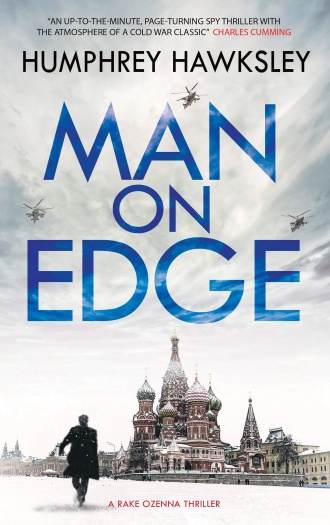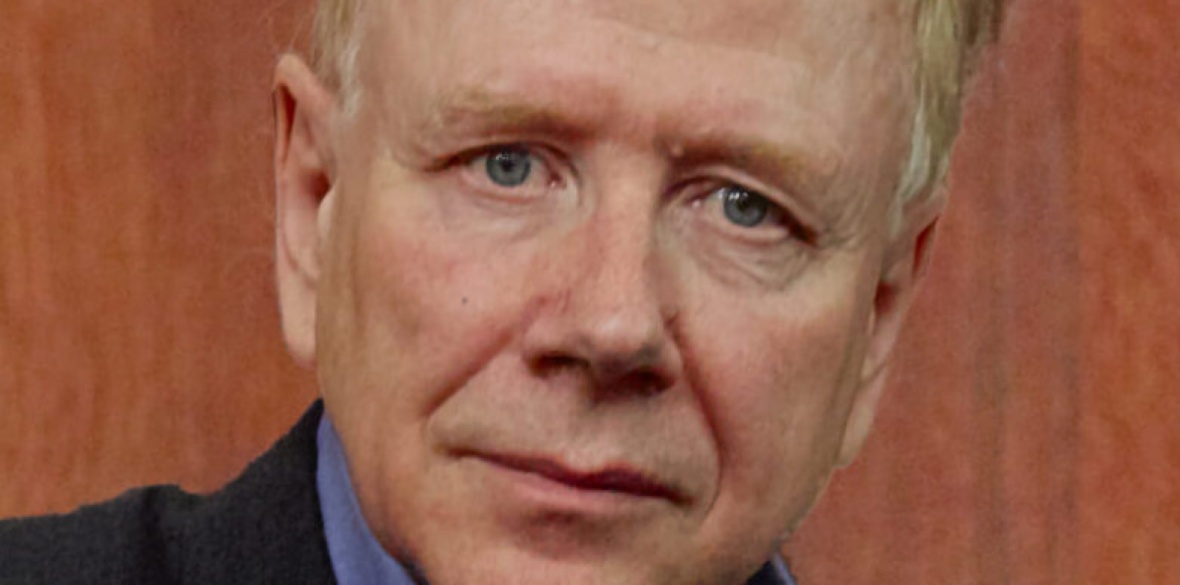This is the last article you can read this month
You can read more article this month
You can read more articles this month
Sorry your limit is up for this month
Reset on:
Please help support the Morning Star by subscribing here
SINCE leaving his job as a foreign correspondent for the BBC, Humphrey Hawksley has put his accumulated knowledge to good use in writing some reasonably insightful accounts of the negative globalised impact of Western liberal democracy.

By contrast, his fictional output is unlikely to cause his ex-bosses at the Establishment broadcaster much concern.
Man on Edge is the second in his Rake Ozenna series which involves various Western intelligence agents grappling with a Russian foe whose stock characteristics are akin to Ian Fleming’s anti-Soviet equivalent in the James Bond franchise.
But what redeems this novel from being an intermediate step in paper recycling is the quality of Hawksley’s research and sense of place.
The plot is almost too silly to summarise — internal conflict within the Russian Establishment threatens to ignite a conflict with the West, which only Alaskan State Trooper and all-round know-it-all and sharpshooter Ozenna can sort out.
The question posed is whether this post-Putin Russia will sidle up to the West for comfort or align itself more fully to those other betes noires in the Hawksley bestiary, the Chinese.
Add into the mix Ozenna’s on-off half-Russian girlfriend and his current squeeze, Norwegian but with a way with Russians, and the personal becomes geopolitical. The results are a horse’s fart from being farcical — horses have a role to play in the narrative.
Sometimes Hawksley’s dialogue looks like it was translated from the Russian back into a transatlantic English before being rehashed all over again.
But, in mitigation, the author creates vivid contexts for his two-dimensional characters to play around in. The crepuscular and inhospitable landscapes along the Norwegian-Russian border from Murmansk to Kirkenes are crisply evoked, as is the on-off relationship between the two countries’ Arctic security personnel.
The same is true for a modern-day Moscow full of skyscrapers, surveillance and menace, with the appeal of Slavic nationalism to a people still rudderless after the demise of the Soviet Union growing into a clear political force.
I knew nothing about the kolovrat spoked-wheel symbol and Hawksley here gives chapter and verse as to its origins and contemporary appeal, manifested in the character of Yumatov. When he’s not staking his claim to be the Bond baddie de nos jours, he is eloquent in his sense of loss at the demise of the Soviet Union.
Man on Edge is also informative, and rather thrillingly so, in demonstrating the use to which technology is being put in both sides’ observations of the other and the ongoing technological arms race, especially as regards submarines.
This is not a bad book. But it could have been a far more sophisticated interpretation of the thriller genre had Hawksley used more of his sense of journalistic nuance and contextualisation.
Man on Edge is published by Severn House, £20.99.











